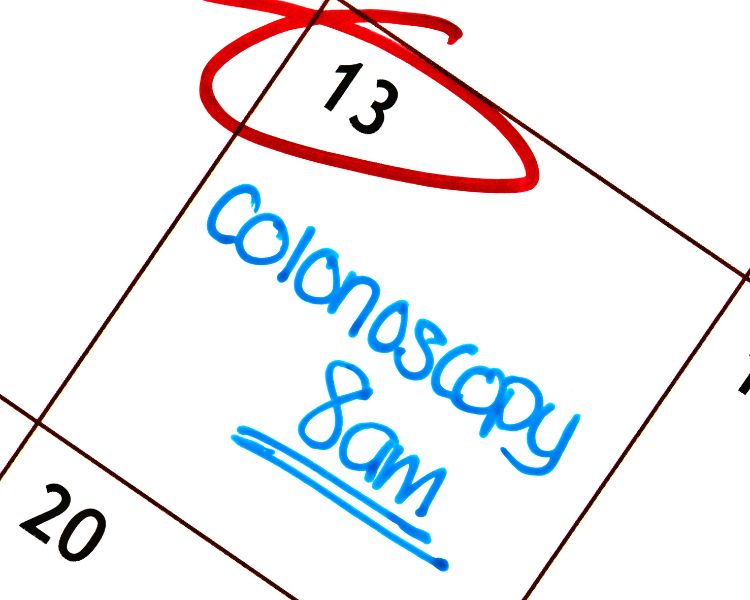Aging is an inevitable part of life that brings about numerous changes in our bodies, not all of which are welcome. As we hit the age of 50, early detection of diseases becomes a crucial part of maintaining overall health, and this is where colonoscopies come into play. Colonoscopies after 50 serve as a powerful tool for cancer prevention, effectively identifying and treating the early signs of colorectal cancer.
But what makes this procedure so critical, and why is age 50 the golden threshold? Let’s dive deeper to uncover some surprising facts.
At Santos Medical Centers, our dedicated centers for the elderly in Miami and Broward, we prioritize your health with the most advanced technology in all areas, including colonoscopies.

Understanding Colon Cancer: Risks and Realities for the Over-50 Population
Colon cancer, also referred to as colorectal cancer, is a type of cancer that starts in the colon or rectum. For the over-50 population, the risk of developing this disease increases considerably. This is largely because more than 90% of colorectal cancer cases are diagnosed in individuals over the age of 50. Lifestyle factors such as diet, lack of physical activity, and obesity can further elevate this risk.
Moreover, individuals with a family history of colon cancer are at a higher risk of developing the disease. Therefore, regular screening through colonoscopies after the age of 50 is highly recommended as it can detect the early signs of colorectal cancer when it is most treatable.
The Science Behind Colonoscopies: How They Work in Cancer Prevention
A colonoscopy is a diagnostic procedure that allows physicians to examine the entire length of the colon and rectum. The procedure involves the insertion of a long, flexible tube (colonoscope) into the rectum. A tiny video camera at the tip of the tube allows the doctor to view the inside of the entire colon and detect any irregularities. If any polyps (abnormal growths) are found during the procedure, they can be removed immediately, preventing them from turning into cancer.
Therefore, colonoscopies play a crucial role in both detecting and preventing colon cancer. This life-saving procedure is a powerful tool that when performed regularly after turning 50, greatly increases the chances of early detection and successful treatment of colorectal cancer.
When to Consider a Colonoscopy After 50
While colonoscopies are commonly recommended for those over the age of 50, certain symptoms may necessitate an earlier screening or more frequent screenings. These include changes in bowel habits, such as diarrhea, constipation, or narrowing of the stool that lasts for more than a few days, rectal bleeding or blood in the stool, persistent abdominal discomforts such as cramps, gas, or pain, feeling like your bowel doesn’t empty, unexplained weight loss, and fatigue.
While these symptoms can indicate other health issues, they are also common signs of colon cancer. Therefore, anyone experiencing these symptoms should consult with their doctor about the potential need for a colonoscopy, regardless of age.
What to Expect During a Colonoscopy
Undergoing a colonoscopy might seem daunting, but being informed about the procedure can help alleviate some of the anxiety. Before the procedure, patients undergo a ‘cleanse’ to empty the colon, typically through a special diet and laxatives. On the day of the procedure, sedatives are usually administered to ensure a comfortable experience. The procedure itself can take anywhere from 30 to 60 minutes, during which the physician will carefully examine the inner lining of your colon. Any detected polyps are usually removed instantly.
After the procedure, patients are monitored until the effects of the sedatives wear off. It is advised to have someone accompany you to take you home, as driving is typically not recommended post-procedure due to the residual effects of the sedation. Mild cramping or bloating can be experienced in the hours following the procedure, but these symptoms generally subside quickly. A follow-up discussion with the physician will provide insight into the findings, and any further steps if necessary.
Early Detection: The Key Role of Colonoscopies in Identifying Precancerous Polyps
Colonoscopies play an instrumental role in the early detection of colorectal cancer by identifying precancerous polyps. These polyps are abnormal growths that may develop into cancer if left untreated. Through a colonoscopy, doctors cannot just identify, but also remove these growths, thereby preventing the onset of cancer.
The procedure thus serves as a preemptive measure, acting before any serious threat to health occurs. Precancerous polyps do not always cause noticeable symptoms, which underscores the importance of regular screenings, particularly after the age of 50. By detecting and removing these polyps, colonoscopies provide a critical line of defense against colorectal cancer.
How Often Should You Get a Colonoscopy After 50?
For most people, it is recommended to start getting colonoscopies at the age of 50 and then every 10 years thereafter, assuming no polyps are found. If one or two small, non-cancerous polyps are found, your doctor may ask you to return for another colonoscopy in 5 to 10 years. If more than two polyps are found, or if any of the polyps are over a certain size or appear cancerous, you may need to return for another colonoscopy in less than 5 years.
As with any general guideline, individual recommendations can vary based on your personal medical history and genetic factors. Always make sure to discuss your specific circumstances with your physician to ensure you follow the best preventative measures for your health.
Demystifying Colonoscopy Myths: Separating Fact from Fiction for Seniors
There are several misconceptions about colonoscopies, especially among older adults, that can discourage or delay them from undergoing this crucial preventive procedure. One common myth is that it’s an extremely painful experience, but in reality, patients are given sedation to minimize discomfort. Another prevailing misconception is that a diet high in fiber makes colonoscopies unnecessary.
While a fiber-rich diet is beneficial for overall colon health, it does not eliminate the risk of developing polyps or cancer. Moreover, some people believe that they don’t need colonoscopies if they have no symptoms. However, colorectal cancer often starts with few or no symptoms at all, making regular screenings essential for early detection. It’s vital to debunk these myths and provide accurate information to seniors to promote regular screenings and early detection of colorectal cancer.

The American Cancer Society (ACS) states that colorectal cancer is the third most common cancer diagnosed in both men and women in the United States. It further reports that the lifetime risk of developing colorectal cancer is about 1 in 23 for men and 1 in 25 for women. These alarming statistics highlight the importance of regular screenings like colonoscopies in early detection and prevention. The ACS suggests that adults aged 45 and older with an average risk of colorectal cancer undergo regular screenings either with a high-sensitivity stool-based test or a structural (visual) examination, depending on patient preference and test availability.
Lifestyle Factors: Reducing Your Risk of Colon Cancer Beyond Screening
In addition to regular screenings, certain lifestyle modifications can significantly reduce the risk of developing colon cancer. Firstly, maintaining a healthy diet plays a crucial role. Incorporating a variety of fruits, vegetables, whole grains, and lean proteins can provide essential nutrients that help protect against cancer. Conversely, limiting red meats, processed meats, and heavily refined foods is advised due to their association with increased cancer risk. Secondly, regular physical activity is recommended. Exercise not only helps maintain a healthy weight, which is associated with lower cancer risk but also can directly influence the health of your colon. Thirdly, moderation in alcohol consumption and cessation of tobacco use are important preventative measures, as both have been linked to an increased risk of colon cancer.
Lastly, certain over-the-counter medications such as aspirin have been found to reduce polyp formation, but their routine use should be discussed with a healthcare professional due to potential side effects.
As always, these preventative measures should be considered in conjunction with regular screenings like colonoscopies, as they offer the best protection against colon cancer.
Post-Colonoscopy: Understanding and Interpreting Your Results
Following a colonoscopy, the findings are usually available immediately, as the doctor can determine whether there are abnormalities or polyps in the colon. If a biopsy was taken or a polyp was removed, these samples would be sent to a lab for further analysis, which can take a few days to a week. The results of these tests will offer more detailed information about what was found in your colon. It’s important to have a follow-up discussion with your doctor about the results, as they can explain what the findings mean and outline any necessary next steps.
If any changes or irregularities were detected, your doctor might recommend additional testing or treatments. Conversely, if no issues are found, your doctor will advise on when your next routine colonoscopy should be scheduled. Understanding your results is key to proactive healthcare, allowing for timely intervention and treatment if needed.
Conclusion
In conclusion, regular colonoscopy screenings are a vital tool in the early detection and prevention of colorectal cancer. Despite prevalent myths and misconceptions, these procedures are generally not painful and are necessary even in the absence of symptoms or a fiber-rich diet. In addition to these screenings, a healthy lifestyle involving a balanced diet, regular physical activity, moderation in alcohol consumption, and cessation of smoking can significantly lower colon cancer risks. Particularly in cities like Miami where the population density is high, awareness and adherence to these preventative measures can drastically reduce the incidence of colorectal cancer and improve overall public health.
At Santos Medical Centers, our dedicated centers for the elderly in Miami and Broward, we prioritize your health with the most advanced technology in all areas, including colonoscopies. Our primary aim is to ensure regular screenings for early detection and prevention of colorectal cancer. We dispel myths, encourage lifestyle modifications to decrease risk, and assist in interpreting results, all with the motive of providing comprehensive care. Remember, timely screenings and preventative measures can be your strongest defense against colorectal cancer. Trust our experienced team at Santos Medical Centers to guide you through this journey toward improved colon health.

